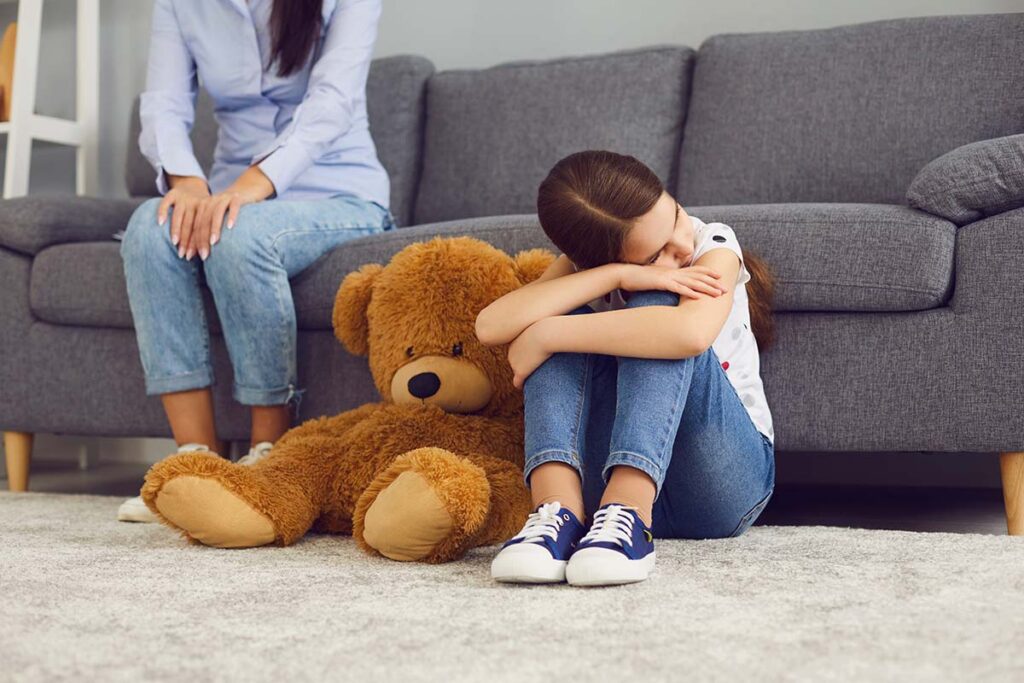If your child is struggling with depression, you might be wondering how this experience could shape their future. How does childhood depression affect adulthood? The answer to this question is complex and deeply connected to your child’s emotional, social, and physical development. Understanding these impacts is the first step toward getting them the help they need to build a healthier and brighter future.
Childhood depression is more than periods of sadness. It’s also a persistent feeling of despair that can interfere with a young person’s ability to connect with others, excel in school, and enjoy their lives. Without professional help, such as teen depression treatment in Los Angeles, the effects of childhood depression can linger into adulthood, leading to long-term challenges that affect nearly every aspect of life.
How Is Childhood Depression Different From Adult Depression?
While adults with depression might express feelings of sadness, worthlessness, or fatigue, childhood depression can often look different. For children, depression may appear as irritability, defiance, or a lack of energy. They might isolate themselves from friends, lose interest in activities they once loved, or struggle to focus at school. These symptoms can sometimes be misunderstood, leading parents and teachers to think the child is just acting out or going through a phase.
But childhood depression is much more than that. Recognizing these unique symptoms early and addressing them through evidence-based treatment can make a significant difference. Early intervention helps set up your child for a healthier, more stable future and prevents long-term consequences.
Emotional Impact of Childhood Depression on Adulthood
How does childhood depression affect you as an adult? Emotionally, untreated childhood depression can leave lasting scars. Many adults who experienced depression as children develop chronic anxiety or other mood disorders later in life. The constant stress and sadness during formative years create deep patterns in the brain, making it harder to regulate emotions in adulthood.
Low self-esteem is another long-term impact. A child who feels “different” or “broken” because of their depression often carries that self-perception into adulthood. They may second-guess their abilities, fear failure, or avoid taking risks, which can limit their opportunities to grow both personally and professionally.
What’s hopeful, though, is that therapy models like CBT (cognitive-behavioral therapy) or DBT (dialectical behavior therapy) can help rewire these negative thought patterns. HillsidesCares specializes in helping children replace feelings of shame or hopelessness with positivity and resilience.
Social Outcomes of Childhood Depression
Connection is a basic human need, but childhood depression can interfere with relationships from a young age. Kids experiencing depression may struggle to trust others, leading to isolation. If untreated, this social withdrawal can persist, creating barriers to forming meaningful friendships and relationships as adults.
How does childhood mental health affect adulthood in terms of relationships? Studies show that untreated childhood depression increases the likelihood of interpersonal difficulties. These challenges often stretch into romantic relationships, where communication or trust issues may arise.
Parents who worry about their child’s ability to develop strong social skills can find comfort in programs like group therapy or family counseling. HillsidesCares helps children learn how to connect and communicate effectively, laying the groundwork for stronger relationships in adulthood.
Physical Health and Substance Use Risks
The physical effects of untreated childhood depression aren’t always obvious but can be far-reaching. Chronic stress caused by depression harms the body over time, increasing the risk of physical health problems like heart disease or weakened immunity later in life.
One alarming finding is the connection between childhood depression and substance use. In fact, children with untreated depression are more likely to develop substance use disorders as adults. Substances like alcohol or drugs might temporarily alleviate emotional pain, but they often lead to cycles of addiction that are hard to break. Early treatment can prevent this spiral and teach your child healthier coping mechanisms. If you’d like to learn more about long-term risks, many studies illustrate how depression in early life affects adulthood.
How Does a Messed-Up Childhood Affect You in Adulthood?
It’s important to acknowledge the role of trauma in childhood depression. Childhood experiences shape a person’s view of themselves and the world. When a child grows up feeling unsupported, misunderstood, or ashamed of their emotions, this can influence their identity and mental health into adulthood.
But no childhood story is unchangeable, even if depression or trauma played a part. Through trauma-informed care, children can learn to heal. Programs like ours integrate therapies like mindfulness and aggression replacement training to help kids reframe their experiences and rebuild their sense of self-worth.
Preventing the Long-Term Effects of Childhood Depression
How does childhood depression affect adulthood? The answer depends significantly on whether the child receives the right help. Untreated depression has far-reaching consequences, but with evidence-based treatments like TF-CBT and family therapy, the future becomes brighter.
If your child is struggling, now is the time for action. Avoiding treatment out of fear or uncertainty only leaves depression unchecked. Seeking care early helps your child develop healthier ways to process their emotions, relate to others, and handle challenges.
Get Help Today From HillsidesCares
HillsidesCares offers compassionate, personalized programs designed for young kids and teens. From equine therapy to mindfulness meditation, our holistic approach meets children where they are and empowers them to thrive.
If you’ve been wondering, “How does childhood depression affect adulthood?” remember this: It doesn’t have to define your child’s future. Reach out to us today to learn more about how we can support your child through evidence-based therapies and give them the tools they need not only to overcome depression but also to flourish in adulthood.
Your child’s path to healing starts here. Call HillsidesCares today at 323.641.4842 or use our online contact form to schedule a consultation or learn more about our programs.

